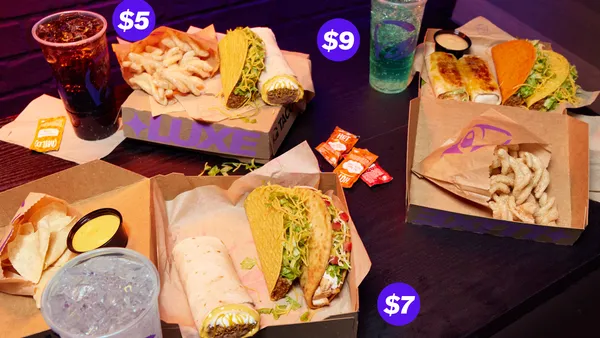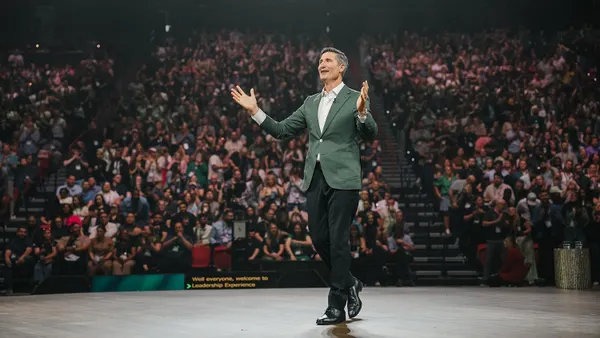Dive Brief:
- 34% of restaurant operators and owners have a dedicated employee whose full-time job is to market the restaurant through ads, promotions and social media and more, according to Toast's 2019 Restaurant Success Report.
- Conversely, 12% of 1,253 restaurant professionals surveyed said that they don't market their brand on social media at all.
- Facebook remains the dominant platform in the restaurant space, with 91% of restaurants leveraging the channel, but Instagram saw a substantial uptick in use from 24% to 78% over the past year. Twitter ranked third for social media use among those surveyed at 39%.
Dive Insight:
The advent and growth of social media has changed the role of the marketer significantly, and continues to do so. Although the medium has been an effective way to reach a large audience relatively cheaply, algorithm changes — particularly Facebook's last year — have forged more of a pay-to-play environment. This may explain why nearly 70% of restaurants planned to pay for social media ads in 2019, according to the Toast report.
Social media strategy has become more complex: it's no longer just a channel to share the appropriate content, but a critical marketing tool that requires strategies and budgets in order to be effective. This is one reason the role of the marketer has become more robust in the past few years.
As Devin Handler, director of marketing at Garbanzo Mediterranean Fresh, told Restaurant Dive last year, the days of marketers holding narrowly-defined roles that only emphasize advertising and brand management are over.
Perhaps that's why it's a bit of a surprise that 12% of restaurant professionals don't market their brands at all. Considering Facebook has 2 billion users and Instagram has 1 billion, those restaurants are missing out on a massive number of potential customers, particularly consumers who spend nearly four hours a day on their mobile devices. Much of that time is spent looking at social media networks.
Still, a new iteration is taking shape in marketing, particularly in social media. While the traditional channels still attract the most eyeballs, newer channels are rapidly growing. In the past two years, the number of restaurants surveyed by Toast that use Instagram jumped by 60%. Furthermore, Chipotle's Lid Flip campaign on the social media video platform TikTok generated more than 230 million views.
New social media channels aren't the only changes that restaurant operators have to keep up with. Artificial intelligence is also making its way into the marketing space, as evidenced by TGI Fridays' multichannel communication strategy, which uses AI to collect data points on customers and then create personalized messaging. The company grew engagement by 500% between June 2017 and August 2018 using the technology, according to Sherif Mityas, its chief experience officer.
It is perhaps because of these changes, and the dizzying pace at which they're happening, that some brands seem to be taking a different approach to marketing. McDonald's, for example, will not replace its newly-departed CMO, instead creating two new positions to fill those duties — SVP of global marketing and SVP of marketing technology. Taco Bell is taking the same approach, of instead of replacing newly-departed CMO Marisa Thalberg, the company will tap two VPs to lead marketing and brand engagement.










